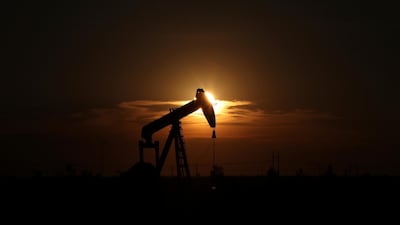CERAWeek, the annual gathering of global energy industry players, started in Houston this week at an interesting juncture where the US is the world's largest producer of crude and is now a net exporter.
US crude production hit 12 million barrels per day in mid-February, exceeding the forecast by the US Energy Information Administration that the figure would be crossed by the second quarter of the year.
The US is riding high on the oil wave, becoming a net exporter for the first time in 75 years, on the back of rising production from its shale basins. Exports are going to Europe and China.
CERAWeek, which is organised by IHS Markit, has played host to discussions between the North American independent energy producers as well as Opec, the organisation currently undertaking supply adjustments in the market.
Saudi Arabia will have only a muted presence at the largest gathering of energy professionals in North America as Saudi Aramco is holding its annual board meeting this week. But Saudi Arabia's caution stems also from the increasing shift in the global energy dynamics to the US as well as the legislation being pushed forward by Congress targeting Opec, which accuses the group of manipulating the market.
CERAWeek began with a geopolitical dialogue that weighs in on hot spots around the world and what impact they are likely to have on the markets. The UAE, an investor in the North American shale gas boom, had representation from Mubadala Petroleum and Petrochemicals, which last year concluded a deal for a refinery and chemicals complex in Texas in a joint venture with France's Total.
UAE Energy Minister Suhail Al Mazrouei, who held the presidency of Opec last year, overseeing quick changes in the alliance's policy, will also headline a panel on day two.
While the dialogue will largely be dominated by the North American players, developments in the Middle East are not far off the agenda.
Day three will play host to energy ministers from Egypt, Cyprus and Israel who will discuss the latest in the race to explore for oil and gas in the Eastern Mediterranean.
The region has become an epicentre for new finds and exploration activity since the 2015 discovery of the massive Zohr gas resource in the Egyptian sector of the Mediterranean Sea by Italian energy major Eni.
US majors such as Exxon are increasingly viewing Egypt as a lucrative new area for exploration. Exxon won its first licence to explore for hydrocarbons in Egypt last month, as the North African state awarded 12 concessions in its largest bid round yet.


